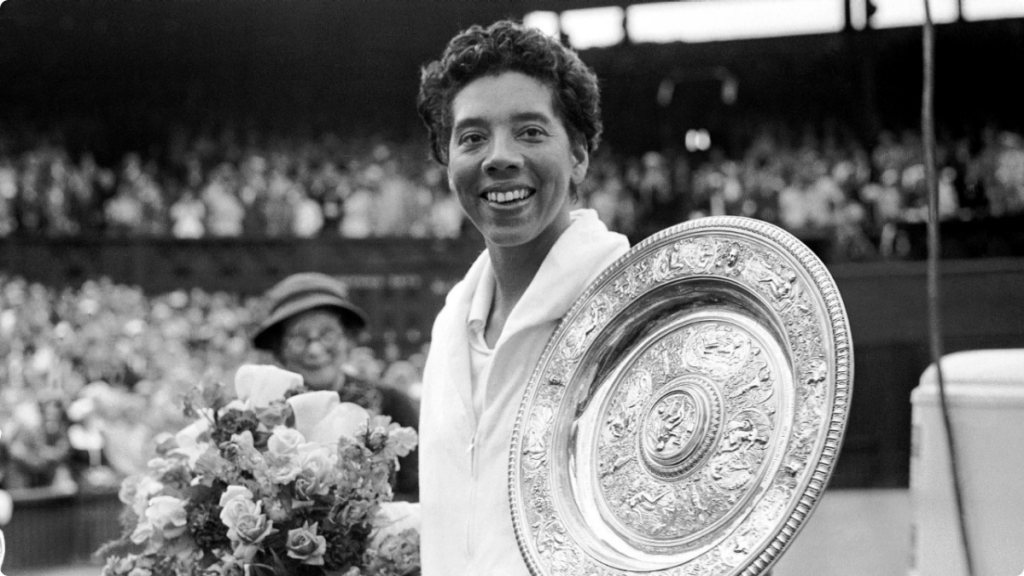
In a move that celebrates the rich history and legacy of Florida A&M University, the university is working with the city to rename Wahnish Way to Althea Gibson Way.
This proposed change is not just about altering a street name. It is a tribute to an extraordinary alumna who exemplifies the spirit of FAMU and its commitment to breaking barriers, according to FAMU President Larry Robinson.
In a pivotal Oct. 25 Tallahassee City Commission meeting, Commissioner Diane Williams-Cox proposed an action that would honor FAMU’s former student-athlete, Althea Neal Gibson, the first African American to win a Grand Slam tennis title and the first Black golfer to break the color barrier in that sport as well.
Born on Aug. 25, 1927, in Clarendon County, S.C., Gibson initially resisted tennis, preferring boxing and basketball. However, her talent emerged at 12 when she became the New York paddle tennis champion. Gibson enrolled at FAMU in 1949 on a full athletic scholarship, Gibson joined the Beta Alpha chapter of Alpha Kappa Alpha sorority while at FAMU and amassed numerous accolades during her time on the hill.
The city commission unanimously passed a motion supporting the renaming of Wahnish Way in recognition of Gibson’s groundbreaking achievements. This symbolic tribute aligns with FAMU’s commitment to celebrating diverse legacies and inspiring current and future generations.
Robinson voiced the university’s wholehearted support for this initiative, emphasizing the profound impact Gibson had not only on the world of sports but also on the narrative of African American achievement. “Florida A&M University fully supports the renaming of Wannish Way to Althea Gibson Way. Althea Gibson is one of FAMU’s brightest stars and an alumna who fully represents that ‘you can get anywhere from FAMU,'” Robinson told The Famuan.
The decision to rename Wahnish Way is a symbolic acknowledgment of Gibson’s remarkable journey, from the tennis courts on FAMU’s campus to the pinnacle of international tennis. As Robinson highlighted, Gibson’s achievements extend from winning the Wimbledon championship to being the first African American to compete at Wimbledon. Her groundbreaking success paved the way for future tennis legends like Venus and Serena Williams, as well as the rising star Coco Gauff.
“From the tennis courts on campus, to the Wimbledon championship title and the first African American to compete at Wimbledon, to the cover of Sports Illustrated, Althea Gibson personified the Rattler spirit and opened the door for the likes of Venus and Serena Williams, and Coco Gauff. Having her name, Althea Gibson Way, as a main artery through our campus is truly an honor,” Robinson said.
The renaming initiative not only pays homage to Gibson’s historic achievements but also underscores FAMU’s commitment to promoting diversity and inclusion. By choosing to honor a trailblazer who shattered racial barriers and inspired generations, FAMU sends a powerful message about the values it holds dear.
As the university moves forward with the proposal, it has sparked conversations on campus about the importance of recognizing and celebrating diverse legacies. The prospect of having Althea Gibson Way as a central feature of the campus landscape has generated enthusiasm and support among students, faculty and alumni.
In essence, the proposed renaming from Wahnish Way to Althea Gibson Way is a declaration of pride, a celebration of achievement, and a testament to FAMU’s enduring commitment to shaping a campus environment that reflects its values and the spirit of its impressive alumni.